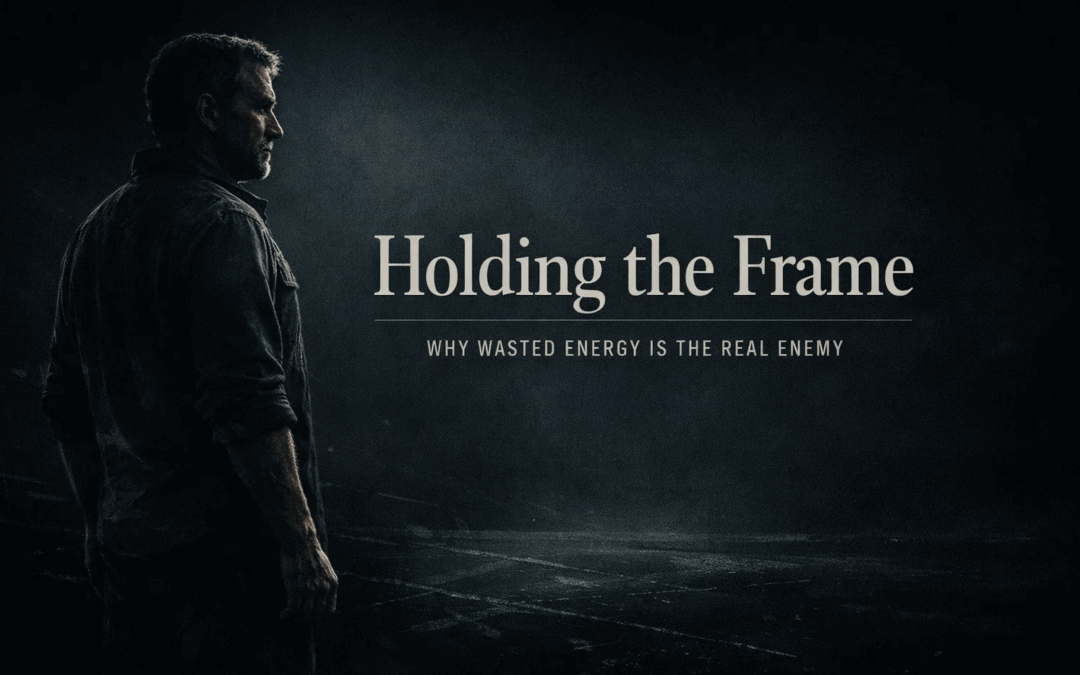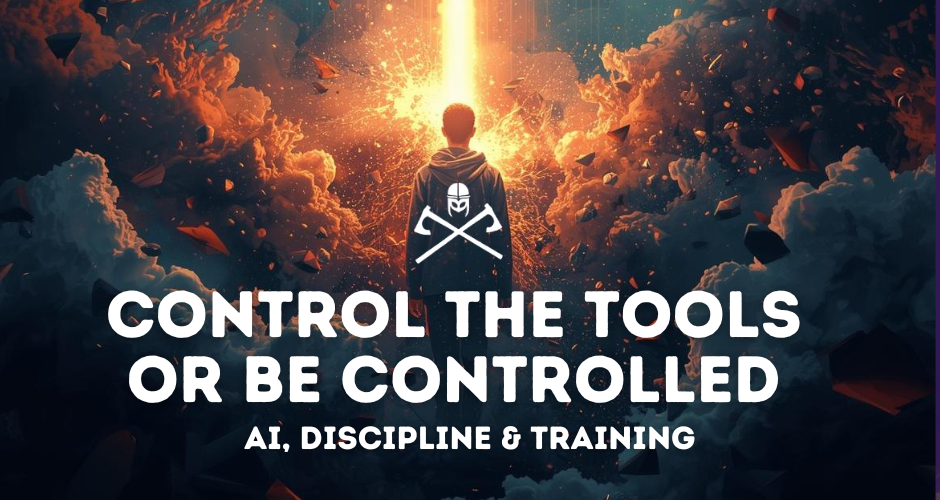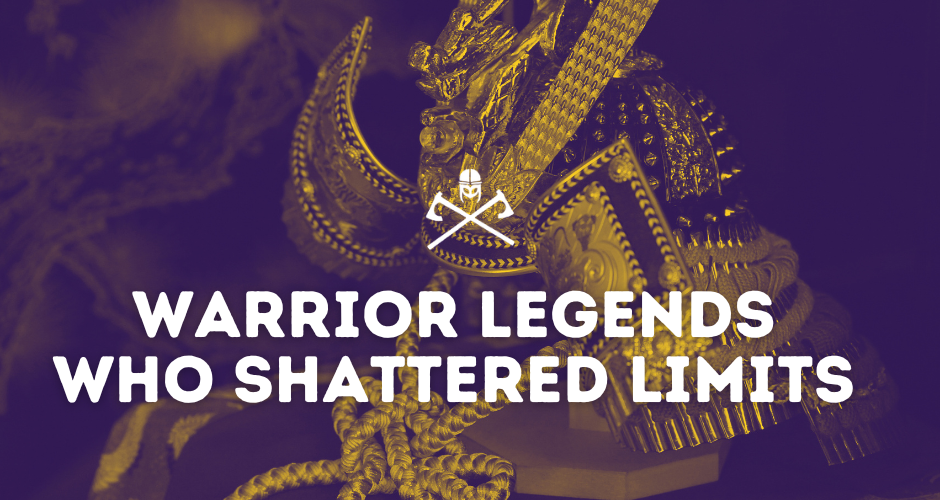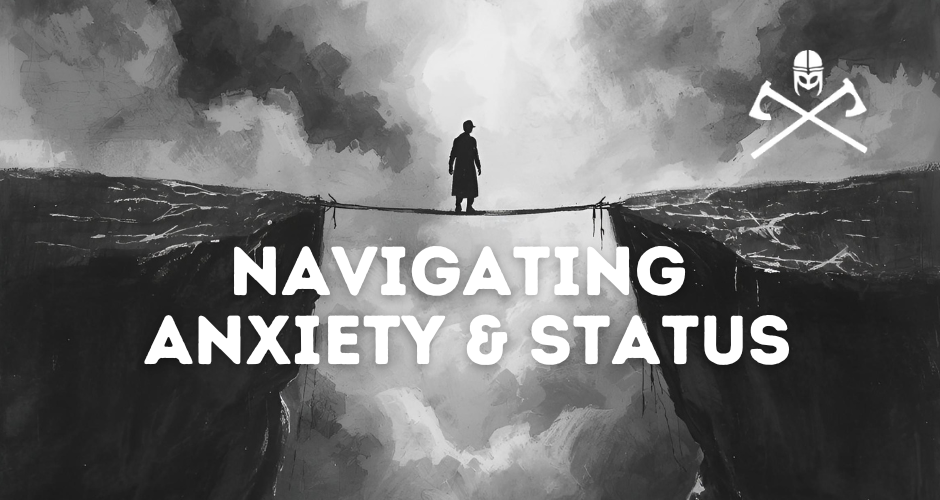
by Gene Crawford | Jan 12, 2026 | Podcast
Motivation feels powerful, but it’s unreliable. That’s why most people stay stuck in cycles of starting, stopping, and starting over again.
In this episode of Warrior Mindset, we break down why motivation fails, why discipline actually works, and how to build a simple system that removes negotiation from your goals. No hype. No waiting to feel ready. Just practical structure that creates real progress.
This is about discipline as a system, not punishment. About consistency without drama. And about building momentum when motivation disappears.
(more…)

by Gene Crawford | Dec 29, 2025 | Podcast
This is a quieter Warrior Mindset episode about energy, restraint, and what changes after years of responsibility.
Endurance matters early. But mastery demands precision. Stoic philosophy and warrior traditions don’t teach endless effort, they teach economy.
If you’ve felt less patient, less willing to waste energy, and more intolerant of inefficiency, you’re not breaking. You’re sharpening.
This episode explores:
- Why wasted energy becomes the real enemy
- The three phases of responsibility and mastery
- Stoic discipline, frame-holding, and economy of force
- Why resentment is a signal, not a failure
- Restraint as strength under control
- This lesson only shows up after years of carrying weight.
(more…)

by Gene Crawford | Dec 22, 2025 | Podcast
The Luddites weren’t afraid of technology. They were afraid of losing control over their work, their time, and their future. Two hundred years later, we’re standing in the same moment again, this time with artificial intelligence.
This episode breaks down why the real AI debate isn’t about intelligence, productivity, or innovation. It’s about power, consent, and who benefits when technology is deployed without public agreement. We unpack AI hype, media language, education risks, productivity myths, and the growing gap between performance and substance in modern culture.
This is a Warrior Mindset conversation about discipline, boundaries, and refusing the lie of inevitability.
Topics include:
– Modern Luddites and AI
– Power vs progress
– Consent, labor, and automation
– Discipline over performance
– Training, culture, and responsibility
(more…)

by Gene Crawford | Dec 15, 2025 | Podcast
In this powerful Warrior Mindset episode, we explore the idea of breaking barrier; physical, psychological, cultural, and institutional. From Miyamoto Musashi to Harriet Tubman, Bass Reeves to Kyle Maynard, we dissect what makes a true warrior: relentless discipline, adaptive thinking, and the refusal to accept limits.
These warriors didn’t just fight battles, they redefined the battlefield. Whether you’re navigating internal struggles or societal expectations, this episode challenges you to confront what’s holding you back and break through it with clarity, purpose, and grit. Adapt faster. Endure longer. Think deeper. This is how legends are made.
(more…)

by Gene Crawford | Dec 8, 2025 | Podcast
Combat sports offer far more than physical conditioning. They give people structure, community, and a brutally honest way to face themselves. Many who struggle with anxiety, depression, or identity issues find stability through training because progress is undeniable and earned. Combat sports replace stigma with connection, giving people a place to fail safely and rebuild confidence. For some, the discipline and consistency found on the mats becomes a lifeline that modern life no longer provides.
(more…)

by Gene Crawford | Dec 1, 2025 | Podcast
This episode dives deep into the hidden link between anxiety and status obsession, drawing from martial arts culture, personal stories, and a revealing Men’s Health article. We explore how fear, aggression, and substance abuse often mask insecurity, especially in sparring environments. Through the lens of martial arts training, stoic philosophy, and 25 years of gym leadership, we offer strategies for facing anxiety with purpose, not ego. From bullying scars to business stress, we show how energy, preparation, and authenticity can transform fear into strength. This is your guide to embracing discomfort, fostering accountability, and rejecting performative masculinity.
(more…)






